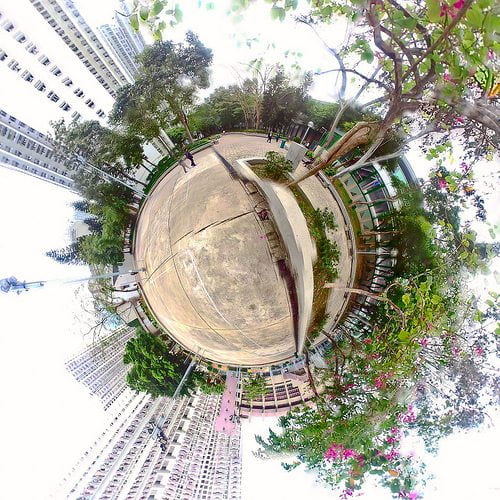

Economy
We need more people with complete sustainability literacy
Sustainability is probably the most important global issue that is least talked about. In essence it’s the need to follow the care instructions for the planet upon which we and our future generations depend.
We can define what a sustainable society is and have the ability to actively create the systems and undertake the behaviours that move towards that vision of success, yet if we look at almost every sustainability indicator, we are accelerating towards the cliff edge, in some cases the point of no return.
Having worked in the field for the last 20 years, I have found that there is still a lack of the core understanding of what we mean by ‘sustainability’ and a huge gap in any approach to strategically achieve it from local to global levels. A few businesses and municipalities are leading in this field, putting in place clear frameworks that are applied to meet the goal of achieving a sustainable state in the future.
These are recognising how to create the practices that respond to the sustainability constraints and opportunities ahead. However, many others talk about the need to be sustainable without any obvious clear strategies to achieve this.
Many are targeting specific sustainability goals, such as carbon or water reduction, yet unless organisations (and also societies) have a more complete understanding and approach to designing out unsustainability throughout their activities then the future heath of the planet and our societies will undoubtedly systematically deteriorate.
The danger lies in that if we only partially ‘get’ sustainability, we will only partially create the sustainability outcomes we need. Having people with a complete sustainability literacy, a common language that can be applied across policy, business and society would eliminate confusion, providing the clarity to make decisions to holistically move us towards our goal.
Too often, I see well-intentioned decisions made with often potentially contradictory long-term outcomes. For example, conversations with social purpose charities identify the focus on delivering their goals for social improvement whilst undertaking activities that undermine the natural systems upon which the social groups they support ultimately depend.
Elsewhere we see organisations invest in carbon intensive systems even though the impacts through climate change will penalise them significantly in the future.
We need to expand our thinking, to build a shared vision and imagine the world that we can all create. This will require us to have a fuller understanding of what sustainability is and our roles in helping to contribute fully towards this.
A future sustainable society is one that we should all hope to build and through this is possible through our unbounded innovation and creativity. It will mean us recognising that some of the systems upon which we rely, those that don’t or can’t deliver to a sustainable society, will need to be adapted.
We will also need to find ways to ensure this vision brings along vested interests and others that may otherwise fight against this change. This dialogue will help challenge many of the systems that currently hold us back. For example, businesses focus on the short-term quarterly reporting requirements and the need to meet the shareholders drive for earnings.
If we developed a shared vision that enables everyone to see their role and identify their needs in the short, medium and long-term, then we will begin to create more appropriate sustainable systems that will meet the needs for everyone for ever. We will see the value in investing for the long-term in all areas of life.
To move us on our path we need to ensure that all decision makers and those that have influence on the planet can use their knowledge strategically to systematically reduce and eliminate unsustainable impacts. This affects some more than others: governments, businesses, NGOs but also individuals who are key levers as both consumers and voters.
Sustainability issues surround us in every place we are and in all the decisions and actions we make now which will have implications for us in the future. Sustainability isn’t rocket science, we just need to raise our understanding to begin connecting the dots and learning actively about the world and societies around us and how our decisions impact on them. By moving from a partial understanding to a fuller understanding then we see the bigger picture and begin positively contributing to the amazing potential that sustainability brings.
Realising it is every one of our roles to help create the future we desire is the first step, becoming curious about what we can and should do and collaborating and creating the innovations and systems that will deliver this world is in our hands – that is if we want that amazing future enough.
Simon Goldsmith has worked in the sustainability arena for the past 20 years, working in many sectors from campaigning for environmental NGOs, to reducing the impacts of multinational oil and gas companies.
Further reading:
What gets measured gets managed: sustainability in 21st century business
The business case for sustainability – an exceptional Forum for the Future event
90% of investors say CSR and sustainability reports are ‘essential’
Business rife with short-termism; just 7% feel pressure to deliver long-term returns


 Environment12 months ago
Environment12 months agoAre Polymer Banknotes: an Eco-Friendly Trend or a Groundswell?

 Features11 months ago
Features11 months agoEco-Friendly Cryptocurrencies: Sustainable Investment Choices

 Features12 months ago
Features12 months agoEco-Friendly Crypto Traders Must Find the Right Exchange

 Energy11 months ago
Energy11 months agoThe Growing Role of Solar Panels in Ireland’s Energy Future




























